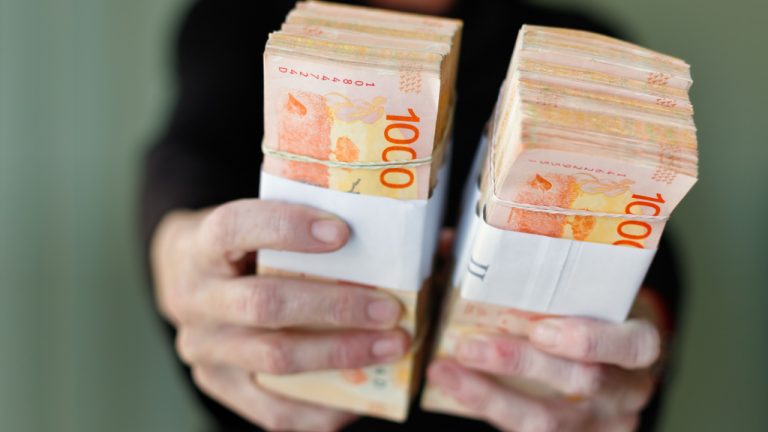
The Argentine peso reached record lows Wednesday after the economy minister and presidential candidate Sergio Massa proposed issuing a national digital currency. The informal blue exchange rate rose to 850 pesos per dollar, later retracing to 843 pesos per greenback. Massa stated he would send an Argentine digital currency proposal to Congress.
Argentine Peso Reaches Record Lows
Amidst the political instability and the proximity of elections, the Argentine peso has sunk to a new record low Wednesday, as economy minister and presidential candidate Sergio Massa announced a new push to launch an Argentine digital currency.
The U.S. dollar, in its informal “blue” exchange rate, reached peaks of 850 pesos in some locations in Argentina, retracing to close with a pricing of 843 pesos per dollar. Argentine analysts attribute this to the closeness of the upcoming elections and the expectation of an administration change.
Economist Camilo Tiscornia told Ambito that “October is a key month for the dollar, due to the electoral context, which, in Argentina, is synonymous with dollarization and rise in exchange rates, especially of the blue dollar.”
The possible victory of libertarian candidate Javier Milei — who has proposed the dollarization of the country as one of the main highlights of his plan — would also affect the exchange rate, according to economist Pablo Ferrari, with people and companies protecting their savings from a possible upcoming devaluation.
Argentine Digital Currency Proposal Advancing
Meanwhile, the plan of issuing a national digital currency presented by Massa could be advanced in this administration, as he stated that he would send it to Congress shortly.
Massa declared:
I am going to send soon the law that creates the Argentine digital currency because there are more than 100 countries that are already doing it.
Official sources from the economy ministry explained that this national currency plan would be implemented in two phases, first strengthening the current financial ecosystem and then building a central bank-backed infrastructure to issue a digital currency.
Furthermore, they added that the Argentine digital currency would boost financial inclusion, allowing for “more freedom and autonomy when carrying out everyday transactions, with easy use and access, including non-digitized or unbanked sectors, and [it] avoids financial bureaucracy.”
What do you think about the Argentine digital currency proposal and the continued devaluation of the Argentine peso? Tell us in the comments section below.







